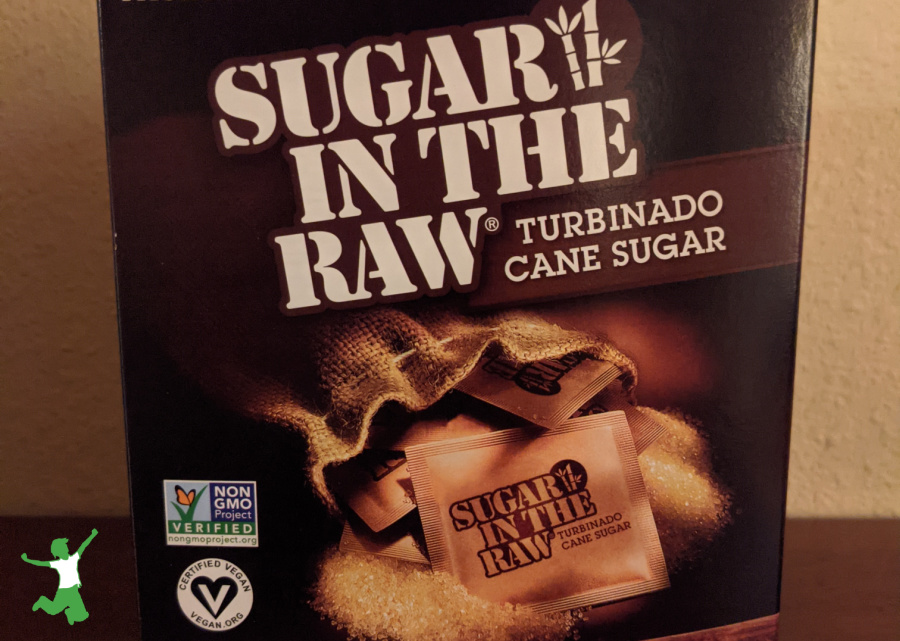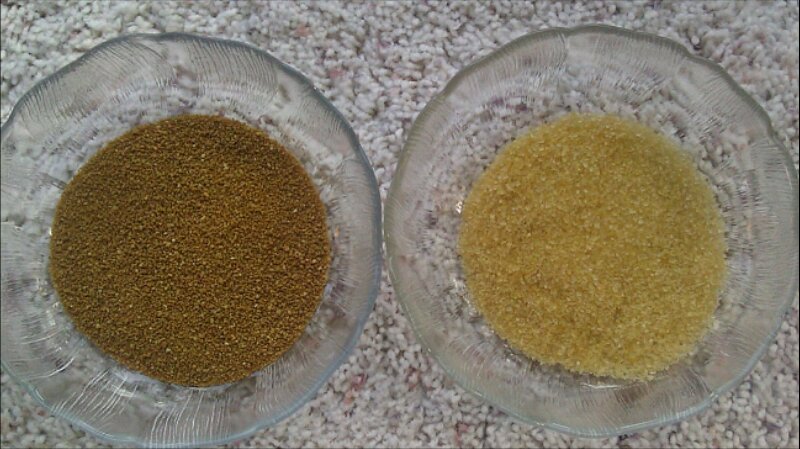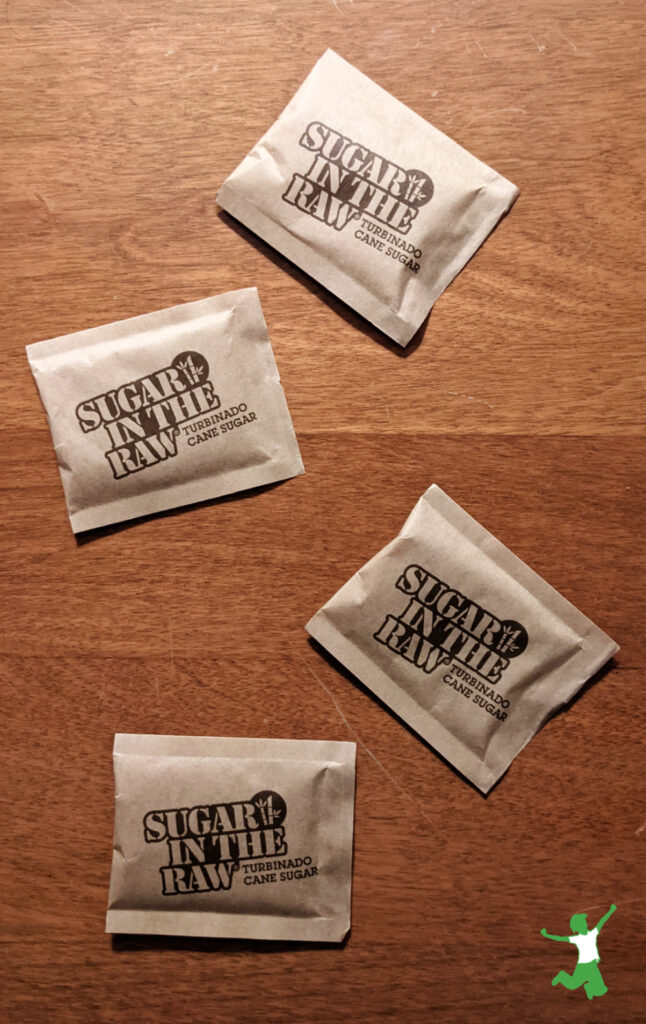Examination of the marketing claim of Sugar in the Raw and whether it is a whole, unprocessed sweetener retaining all the minerals of raw cane juice.

If a food is labeled as “raw”, what exactly does that mean?
To a consumer like me, raw means that the food is completely unadulterated. It has not in any way changed from its original natural form.
In other words, nothing has been added, removed, or heated to a temperature that would change any of the inherent nutritional characteristics.
Unfortunately, to food manufacturers, the definition of “raw” can be quite different.
In fact, raw to Big Food can translate to highly processed, industrialized food!
I’ve written before about how most raw cheese at the store is not raw at all in reality! In addition, cold-pressed raw milk and cold-pressed juice are not actually fresh either.
Sugar in the Raw Marketing Ploy
Another fake raw food at the store that is fooling a whole lot of people is “Sugar in the Raw”. It is also known as turbinado sugar or natural cane sugar.
But what about the “Good Housekeeping” seal of approval that sometimes appears on the box?
Doesn’t that mean that the Sugar in the Raw product is legitimate and to be trusted in its labeling claims?
Apparently not. Here’s what the manufacturer of Sugar in the Raw has to say about its product:
Enjoy sweet moments naturally with Sugar In The Raw®, our all-natural Turbinado sugar grown in the tropics. The hearty, golden crystals are never bleached, so they keep the rich flavor and color of their natural molasses. So go on, stir it in or sprinkle it on. Bake and cook with it too. Whatever you do, just do it naturally with Sugar In The Raw®.
It seems that just because Sugar in the Raw is unbleached makes it raw.
Perhaps that is what the USDA allows when it comes to labeling sugar products.
To me, sugar that is truly raw means much more than just unbleached. It means that nothing has been removed or added as well.
The marketing of this product is so sneaky because it leads the consumer to believe that the natural molasses is intact.
And, for Sugar in the Raw, a small amount of the molasses is indeed intact because it is a darker color than white sugar.
The truth, however, is that MOST of the molasses HAS been stripped away.
Comparison to Sucanat

Check out the picture above which shows a bowl of Sugar in the Raw next to a bowl of sucanat.
Notice the dark brown color of sucanat which is truly unprocessed cane sugar with all minerals, nutrients and molasses intact.
The lighter color of Sugar in the Raw indicates that the manufacturer has removed much of the mineral content.
In other words, the much darker sucanat visually demonstrates that Sugar in the Raw is a fake food masquerading as real.
It is an adulterated product contrary to the sneaky claims by the manufacturer.
What is the Best Cane Sugar?
Looking for the best and most nutritious form of cane sugar for your homemade cookies and cakes?
Sucanat is it! It is the best alternative to white or brown sugar substituted 1:1 in all your recipes.
It is best to bypass Sugar in the Raw or other turbinado sugar brands.
Florida Crystals is another cane sugar brand missing most of the molasses, so beware!
Most White or Brown Sugar is GMO
Another HUGE problem to watch out for is that most white or brown sugar in North America is partially or totally beet sugar. This sweetener is nearly always GMO unless certified organic.
GMO beet sugar is visually and taste-wise completely indistinguishable from white cane sugar.
Is beet sugar healthy? While it may seem so because it comes from a vegetable, the truth is that it is not!
Sugar from sugar beets is nutritionless and contaminated with gut-destroying glyphosate residue. Nearly 100% of farmers growing it use Monsanto’s Roundup Ready sugar beets.
A package of sugar must specifically state that the sweetener is cane sugar or be certified organic, else it is almost certainly a mixture that is wholly or partially GMO beet sugar.
Even brown sugar commonly contains at least some white beet sugar mixed with cane sugar molasses. The molasses from sugar beets is not fit for consumption.
To get the real thing, look for sucanat or sugarcane jaggery. Both are simply dried cane sugar juice with all minerals intact.
Ancestral cultures in India enjoyed these sweeteners for thousands of years.
What is a Safe Level to Consume?
While sucanat is your best choice when trying to find a truly natural and unprocessed substitute for processed cane sugar, be careful not to overdo.
Eating too much sugar can lower immunity, even if natural and unprocessed, in a manner similar to white sugar or partially processed sweeteners like Sugar in the Raw.
In summary, it always pays big dividends to do a little checking before buying into any labeling claims.
Sugar in the Raw is just another clever marketing scheme designed to make money off of consumers who genuinely are trying to improve their diets but don’t have quite enough information to make a completely informed decision.
Where to Find Truly Unprocessed Natural Sweeteners
Need help identifying truly natural, unprocessed whole sweeteners?
Please visit my Shopping Guide for a vetted list of vendors I buy from who offer quality sucanat, jaggery, coconut sugar, raw honey, maple syrup, and other wholesome sweeteners.
Beware that popular “healthy” sweeteners like xylitol and other sugar alcohols as well as brown rice syrup used in many organic foods and baby formula are highly processed. This is why making homemade baby formula is a better choice than commercial brands.








Two years after getting covid shot I developed a terrible allergy to sugar and foods containing sugar.
I can’t use those popular sugar subs either.
Is there a choice for me. I would love to have my morning tea again.
Thank you for your help.
I noticed that some Sucanat is labeled as organic while others are not. Is this important or in the case of Sucanat is “organic” superfluous? (I ask because it’s more expensive of course, so I want to make sure it’s worth the money). Thank you!
Organic is important as sugar cane is a highly sprayed crop when conventionally grown.